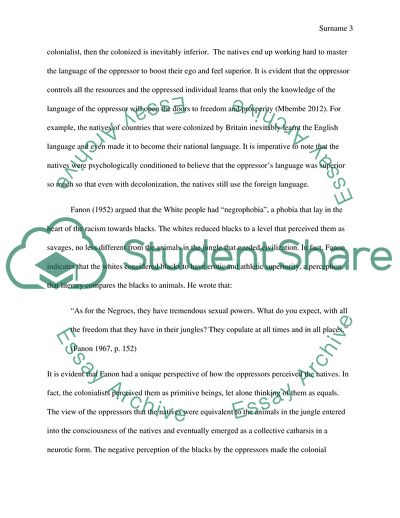Cite this document
(The Originality of Frantz Fanon's Diagnosis of Colonial Subjects Essay - 1, n.d.)
The Originality of Frantz Fanon's Diagnosis of Colonial Subjects Essay - 1. https://studentshare.org/sociology/1800622-assess-the-originality-of-frantz-fanons-diagnosis-of-colonial-subjects
The Originality of Frantz Fanon's Diagnosis of Colonial Subjects Essay - 1. https://studentshare.org/sociology/1800622-assess-the-originality-of-frantz-fanons-diagnosis-of-colonial-subjects
(The Originality of Frantz Fanon'S Diagnosis of Colonial Subjects Essay - 1)
The Originality of Frantz Fanon'S Diagnosis of Colonial Subjects Essay - 1. https://studentshare.org/sociology/1800622-assess-the-originality-of-frantz-fanons-diagnosis-of-colonial-subjects.
The Originality of Frantz Fanon'S Diagnosis of Colonial Subjects Essay - 1. https://studentshare.org/sociology/1800622-assess-the-originality-of-frantz-fanons-diagnosis-of-colonial-subjects.
“The Originality of Frantz Fanon'S Diagnosis of Colonial Subjects Essay - 1”. https://studentshare.org/sociology/1800622-assess-the-originality-of-frantz-fanons-diagnosis-of-colonial-subjects.


